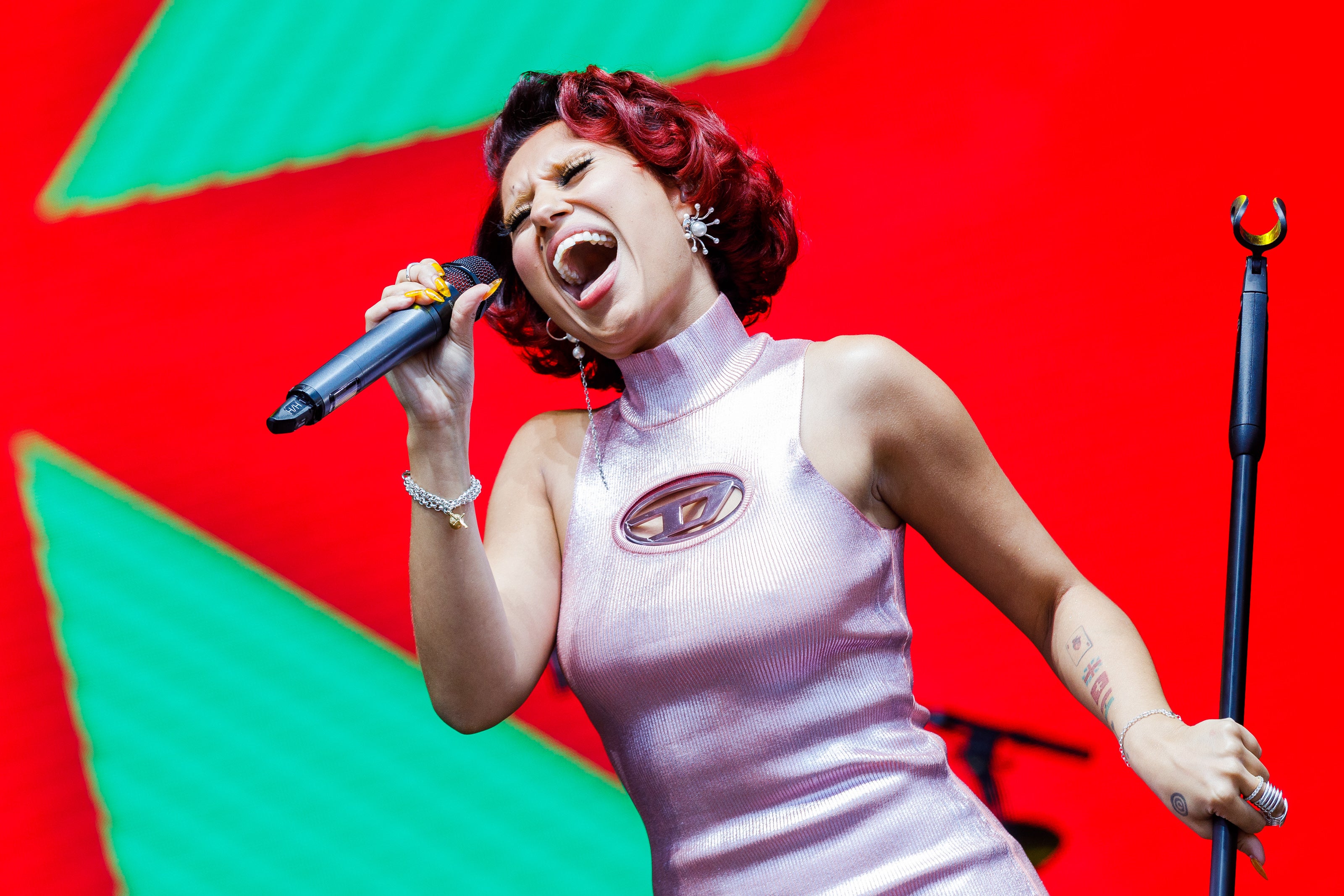The Brits are taking representation seriously, but there are three issues that still need fixing
The nominations for this year’s ceremony are in, showing a drastic improvement after 2023 was dominated by male artists. Roisin O’Connor has a few suggestions for what else could be worked on

There was a palpable nervousness surrounding this year’s Brit Award nominations – and I mean, no wonder. Just two years after the introduction of genderless categories – a move that was supposed to encourage diversity at an awards show with a history of favouritism towards male pop singers – the 2023 nominations sparked yet another row as it was revealed that all contenders in both the Artist of the Year and International Artist of the Year categories were male.
Compared to previous years where the imbalance was there for all to see but glossed over by officials, this year’s Brits organisers seemed determined to address the issue head-on. The Artist of the Year categories were expanded from five nominees to 10, and finally, the R&B category – previously lumped in with pop, meaning actual R&B singers got left out in the cold – was afforded its own space.
The results speak for themselves. Across the board, there’s a visibly improved showing of female acts, from Dua Lipa and her Barbie bop, “Dance the Night Away” to singer-producer PinkPantheress with her electronic-pop number “Boys a Liar”. It’s a particularly triumphant moment for RAYE, who has broken a record to become the artist with the most nominations (seven) in a single year – a feat that’s all the more impressive given that it follows not long after the musician broke free of her former record label to score a No 2 album with her debut, My 21st-Century Blues.
It’s an achievement, too, that the Brits have managed to better reflect the sheer breadth of talent across genres in the UK. The Artist of the Year nominees span rap, soul, dance, R&B and pop, while the top award – for Album of the Year – features Britpop veterans Blur alongside two Mercury Prize winners: rapper Little Simz and Scottish hip-hop/rock collective Young Fathers.
“It’s important that we listen, that we consult, and that we learn,” musician Yolanda Brown, chair of the UK Records Association (which oversees the awards), said during the nominees announcement, as she addressed the furore around last year’s event. The Brit Awards, she said, are a “work in progress”, and while she and her fellow organisers were keen to celebrate any improvement, it was also promised that, this time around, they won’t get complacent.
Hopefully, then, Brown and co won’t mind a few notes on the 2024 ceremony. The Best Group and International Group categories still feel (for the most part) woefully out of touch. On their own, nominees such as Blur and their excellent ninth studio album, The Ballad of Darren, are more than deserving of a statuette – but once again, as with most years, it’s these categories that continue to lag about a decade behind what’s actually happening in contemporary music. It’s a depressing tradition to carry on, particularly at a time when groups are thriving – contrary to what certain ageing rockers have to say. Might I suggest that a tweak to the eligibility rules would help celebrate the new blood coming through, like, say, allowing the inclusion of artists who have yet to release a full-length project?
Ditto, the Best New Artist category. RAYE deserves to be celebrated, of course. But a full decade has passed since she released her debut EP, Welcome to the Winter, and eight years since she achieved her first Top Five single, as a featured artist on her co-write with Jax Jones “You Don’t Know Me”. Mahalia, meanwhile, has released two studio albums and appeared on the Brits’ Critics’ Choice Award – intended to champion the “next big thing” – back in 2018, the same year she made the BBC’s Sound Of poll. The other three spots are taken up by PinkPantheress, Olivia Dean and Yussef Dayes – all huge talents, yes, but also relatively well-established ones.
Then there’s the voting academy itself. The Brits have taken steps to foster balance within its ranks of industry experts, critics, and radio pluggers, but inviting record label employees each year – when they very clearly will only ever vote for artists on their own roster – is ludicrous. Whittling it down to as discerning a group of voters as you could hope for might help provide a better platform for the many artists who are still being overlooked each year, often in favour of the same old faces.
No awards ceremony is going to get it right every time – but if the Brits can at least root out the mistakes they keep repeating, the awards will end up with something that looks a lot more like the true UK music industry: diverse, vibrant, and ever-changing.
You can find the full list of Brit Awards 2024 nominations here.
Subscribe to Independent Premium to bookmark this article
Want to bookmark your favourite articles and stories to read or reference later? Start your Independent Premium subscription today.

Join our commenting forum
Join thought-provoking conversations, follow other Independent readers and see their replies